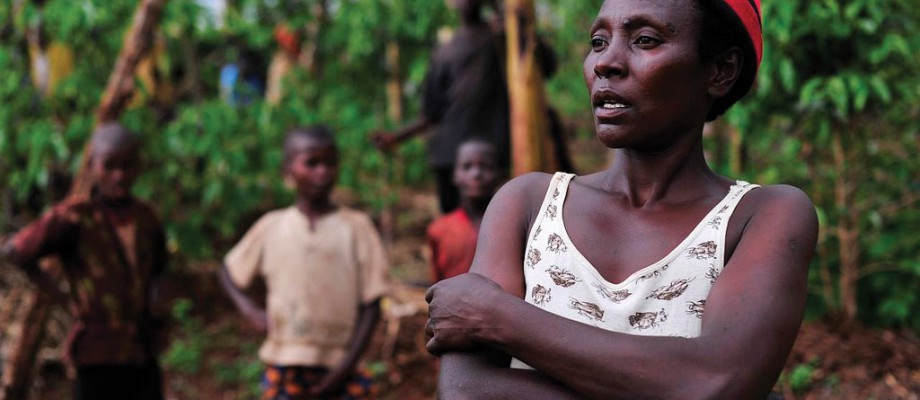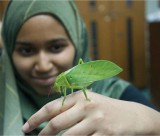
Genocide’s inspirational survivors
November 2nd, 2014
Women who survived the Rwandan genocide are stronger and are inspiring positive changes in society, according to researchers at the University.
A high proportion of the 800,000 victims of the Rwandan genocide were men. As one survivor told interviewers, women had to find new strength: “To see my kids growing up gives me hope. Before, raising my kids alone without my husband or without a job would have been inconceivable.”
The researchers, in looking at post-traumatic growth — how individuals and societies can strive after adversity — also found that Rwandan society had become more focused on the individual. And while women do have more influence, the stigma attached to genocide victims is still holding them back.
Funded by an AHRC Collaborative Doctoral Award, PhD student Caroline Williamson in the University’s Department of French and Francophone Studies worked in Rwanda for a year with the Nottinghamshire-based NGO The Aegis Trust, which campaigns against genocide and crimes against humanity, and runs the Kigali Genocide Memorial Centre.
Caroline proofread transcripts for the Trust of survivors’ interviews which form part of the Genocide Archive. She also analysed testimonies for her own research.
After the genocide, two-thirds of the population were female. In a society where previously women could not legally own property and it was taboo for a woman to head a household, attitudes and the law had to change and evolve.
“The women interviewed saw themselves as stronger after living through the genocide,” said Caroline. “They lost husbands, sons, brothers and fathers. Often they were subjected to horrific sexual attacks. But these women often came through the experience with a raised sense of self-reliance.”
Survivors also inspired each other. “I saw people who survived unexpectedly,” one woman said. “They tried to kill them but they refused to die. They may have lost an eye, a nose or a tongue yet still they survived.”
The genocide even affected everyday language. “Through the transcripts, you can see the change in the way people speak,” added Caroline. “Where previously they would have used the first person plural, they described their experiences in the first person singular.
“But many lost their entire families. They went from being a ‘we’ to an ‘I’ in a short space of time.”
Caroline’s project — linked to a collaboration between The Aegis Trust and Dr Nicki Hitchcott of the Department of French and Francophone Studies — will increase understanding of the genocide. As Dr Hitchcott explained: “Caroline’s work at Genocide Archive Rwanda will help ensure that the voices of women survivors of the 1994 genocide are heard around the world.”
Tags: Aegis Trust, Caroline Williamson, Department of French and Francophone Studies, Dr Nicki Hitchcott, Genocide Archive, Genocide Archive Rwanda, Rwandan genocide
Leave a Reply
Other Issue 73

Shirley Anne’s still in love with Arthur
Hundreds of people turned up to see actress Shirley Anne Field open an exhibition inspired by […]

Malaysia trip teenagers will never forget
Elephant trekking, conservation work and a daily slice of molten chocolate cake — it’s no wonder […]

